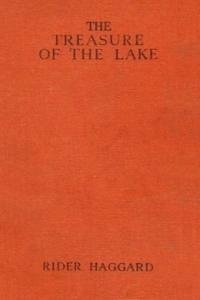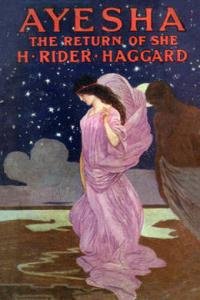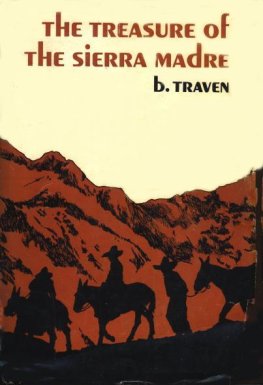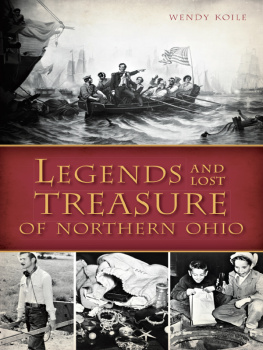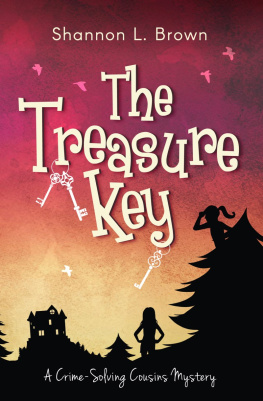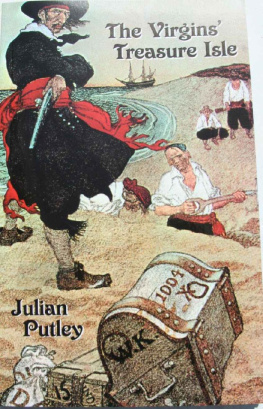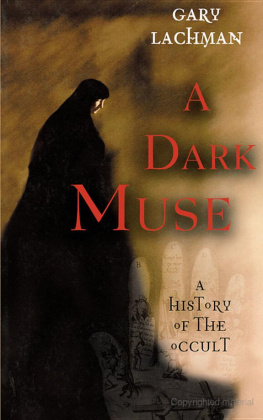Genri Haggard - The Treasure Of The Lake
Here you can read online Genri Haggard - The Treasure Of The Lake full text of the book (entire story) in english for free. Download pdf and epub, get meaning, cover and reviews about this ebook. year: 2015, publisher: epubBooks Classics, genre: Adventure. Description of the work, (preface) as well as reviews are available. Best literature library LitArk.com created for fans of good reading and offers a wide selection of genres:
Romance novel
Science fiction
Adventure
Detective
Science
History
Home and family
Prose
Art
Politics
Computer
Non-fiction
Religion
Business
Children
Humor
Choose a favorite category and find really read worthwhile books. Enjoy immersion in the world of imagination, feel the emotions of the characters or learn something new for yourself, make an fascinating discovery.
- Book:The Treasure Of The Lake
- Author:
- Publisher:epubBooks Classics
- Genre:
- Year:2015
- Rating:3 / 5
- Favourites:Add to favourites
- Your mark:
- 60
- 1
- 2
- 3
- 4
- 5
The Treasure Of The Lake: summary, description and annotation
We offer to read an annotation, description, summary or preface (depends on what the author of the book "The Treasure Of The Lake" wrote himself). If you haven't found the necessary information about the book — write in the comments, we will try to find it.
The Treasure Of The Lake — read online for free the complete book (whole text) full work
Below is the text of the book, divided by pages. System saving the place of the last page read, allows you to conveniently read the book "The Treasure Of The Lake" online for free, without having to search again every time where you left off. Put a bookmark, and you can go to the page where you finished reading at any time.
Font size:
Interval:
Bookmark:
The Treasure Of The Lake
H. Rider Haggard
Preface
By Allan Quatermain
I cannot remember that anywhere in this book I have stated what it was that first gave me the idea of attempting to visit Mone, the Holy Lake, and the Dabanda who live upon, or, to be precise, at some distance from its shores. Therefore I will do so now.
There is a certain monastery in Natal where I have been made welcome from time to time, among whose brethren was a very learned monk, now "gone down", as the Zulus say, who, although our faiths were different, honoured me with his confidence upon many matters, and I think I may add with his friendship. Brother Ambrose, as he was called in religionwhat his real name may have been I do not knowa Swede by birth, would have been an archaeologist, also an anthropologist pure and simple, had he not chanced to be a saint. As it was he managed to combine much knowledge of these sciences with his noted and singular holiness. For example, he was the greatest authority upon Bushmen's paintings that I have ever met, and knew more of the history, religions, customs, and habits of the inhabitants of Southern, Eastern, and Southcentral Africawell, than I did myself. Thus it came about, our tastes being so similar on these and other subjects, that when we could not meet and talk, often we corresponded.
One of his learned letters, which I still preserve, was written to me many years ago from Mozambique, whither he had gone upon a journey connected with the missionary enterprises of his order. From it, for the sake of accuracy, I will quote some passages.
Brother Ambrose says:
"In this island I have come into touch with a man, a rescued slave whom it was my privilege to baptize and to attend through his last illness, during which he made many confidences to me. Peter, as he was called because he was received into the Church upon the feast day of that saint, was a man of unusual appearance. His general cast of countenance and physique were Arab, and his native language was a somewhat archaic dialect of Arabic. His eyes, however, were large and round, almost owllike, indeedby the way, he had a singular faculty of seeing in the darkand his handsome features were remarkable for a melancholy, which I think must have been inherited and not due to his experiences of life.
"He told me that he belonged to a small tribe dwelling in the neighbourhood of mountains called Ruga, far beyond a great lakeI am not sure what lakewhich mountains I gathered are not far distant from some branch of the Congo River in the remote interior. The home of his tribe, if I understood him aright, was a large hollow of land enclosed by cliffs. In the centre of this hollow lies a big sheet of water surrounded by forest which, he said, is considered holy. When I asked him why it was holy, he replied because on an island in this water dwelt a priestess who is a Shadow of God, or of the gods, a beautiful woman with many magical powers, who utters oracles and bestows blessings on her worshippers (which, being interpreted, means, I take it, a fetish or rather the head servant of a fetish credited with the power of making rain and of averting misfortunes). About this person he told me many legends too absurd to record, amongst others that she and her husband, who is the chief of the tribefor she has a husbandare sacrificed at a certain age, when her place is taken by another 'Shadow', who is reputed to be her daughter.
"One other thing he told me which I am sure will interest you very much; indeed, although I am very busy, I write this letter chiefly in order to pass on the superstition, or legend, or whatever it may be, before I forget exactly what he said. You and I have often discussed the mysteries of the African forms of taboo. Well, Peter described a variety of it that was quite new to me. He declared that to his tribe ALL wild game are taboo and may not be killed or eaten by any member of the tribe, who, it seems, are largely vegetarians, but supplement this diet with the flesh of goats and cattle, of which they possess many herds. Nor is this all, for he assured me further that his people exercised great power over these untamed beasts, living with them on the same terms of familiarity as we do with dogs and horses and other domestic animals. Thus he asserted positively that they can send them away to or call them back from any given spot, and make them do their bidding in various other fashions, even to the extent of being able to cause them to attack anyone they choose.
"I tried to extract from him what he believed to be the reason for this alleged remarkable authority over the wild fauna of his country, but all I could make out was that the priests taught some form of the old Pythagorean doctrine of metempsychosis (as you know, not uncommon in Africa, especially when tyrannical chiefs are concerned); I mean that the souls of men, particularly of those who had led evil lives, are reborn in the bodies of beasts, which beasts are therefore, in a sense, their kin, and on this account feared and venerated.
"It was extremely curious to hear these preChristian delusions from the mouth of a modern African native, and I wonder very much if his story has any faint foundation in fact. Probably not, but, my dear friend, if ever you get the chance in the course of your explorations, DO try to find out. You know that, like you, I hold that scattered here and there through the vast expanse of Africa are the remains of peoples who still preserve fragments of ancient systems and religions, such as the Babylonian starworship or that of the gods of old Egypt."
Then the letter goes on to tell of the decease of Peter, before Brother Ambrose could further pursue his inquiries about a carving that he had discovered somewhere on the East Coast, which he thought must have been executed by Bushmen in the remote past; although there is, or was, no other evidence that they ever lived so far north.
This incident of the strange story told to Father Ambrose by the dying native, Peter, remained fixed in my mind, and in the end was the real cause of the journey described in the following pages.
I should like to take this opportunity to say that on rereading this record, which is an expanded version of a diary I kept at the time, I am not sure that I have succeeded in conveying an adequate sense of the eeriness that pervaded the Dabanda people and their country. No wonder that added to the various humiliations which I suffered in their land, this unearthly atmosphere, whereof dwellers in the fetishridden districts of Africa have often had experience, at last got upon my nerves to such an extent that if I had stopped there much longer I believe I should have gone crazy.
Another thing that I wish to state is that on weighing the evidence, whatever reasons old Kumpana and others may have given, I am now convinced that Hans was right and that the real cause which led them to procure the return of Kaneke to Moneland, was that they might execute him in punishment for his crime of sacrilege in earlier life. On this I believe they were determined both from vindictiveness and because, under their iron law, while he lived it was impossible for the mysterious "Treasure of the Lake" to take another man to husband, as for their own secret reasons they desired that she should do.
Lastly, it might be asked why I do not more accurately indicate the exact geographic position of Moneland and its holy hidden lake. I will face ridiculeespecially as I shall never live to feel its shaftsand make a confession. Before I left his country, as Arkle had done in his letter, Kumpana assured me with much quiet emphasis that if I revealed its exact locality and explained how it could be reached by any other white man, the results to them, also to myself and Hans in this or later lives, would be most unpleasant. I did not and do not believe him; still, in view of my experience of the uncanny powers of the Dabanda priests, I thought it wisewell, to keep on the safe side and on this point to remain a little indefinite.
Font size:
Interval:
Bookmark:
Similar books «The Treasure Of The Lake»
Look at similar books to The Treasure Of The Lake. We have selected literature similar in name and meaning in the hope of providing readers with more options to find new, interesting, not yet read works.
Discussion, reviews of the book The Treasure Of The Lake and just readers' own opinions. Leave your comments, write what you think about the work, its meaning or the main characters. Specify what exactly you liked and what you didn't like, and why you think so.

